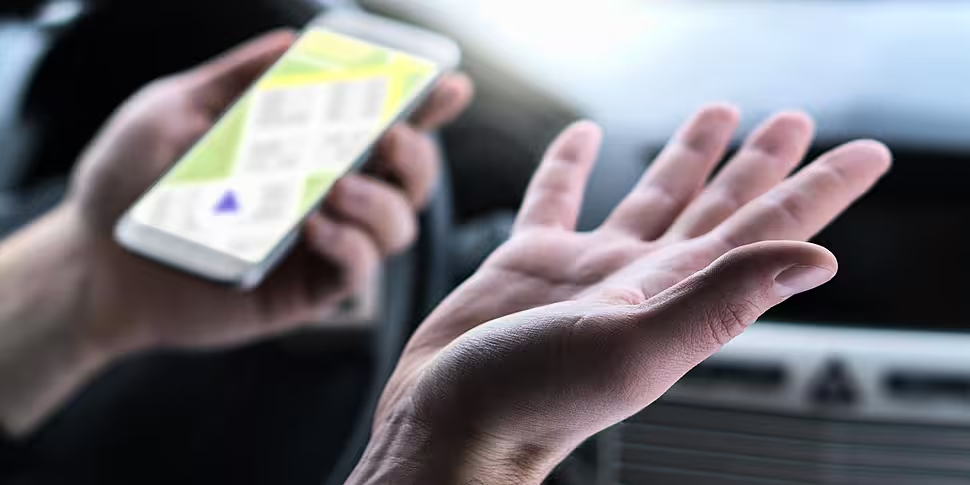Google Maps is one of the leading navigation applications worldwide – but have we become too dependent on it?
In the modern world, the majority of smartphones users have long ditched physical maps, in favour of online navigation.
However, while Google and Apple Maps may be valuable tools in cityscapes, users have reported incorrect and even impossible directions in more rural destinations.
Speaking to Moncrieff, Motoring Editor at The Sunday Independent Geraldine Herbert said Google Maps has often sent her in wayward directions.
"For some reason, Google Maps works out the quickest way but not necessarily the best way," she said.
'Most challenging'
Ms Herbert said she had relied on Google Maps when she was driving to the Lake District in northwest England.
"It sent me up off this incredibly steep mountain," she said.
"It turned out it was actually the Hardknott Pass, which is one of the most challenging roads in Britain.
"It has gradients that are steeper than the mountain stages of the Tour de France."
'Stupidity'
In 2013, it was reported that a Belgian woman was trying to get to Brussels, but she went on an 1800-mile detour through six countries because she was following her Google Maps.
"I mean, there's relying on technology and then there's just pure stupid," Ms Herbert said.
"Even the language on this road was changing.
"I think there's a case there for just saying, 'Look use common sense as well."
Accuracy
Users can specify whether or not they want to avoid motorways and told, Ms Herbert said
"You can put in for a diesel car and it might send you on routes that are more economical for diesel cars," she said.
Ms Herbert said the app should be able to consider car size.
"[You could] say my car is this size, so, it just won't fit on these narrow country roads, so can you suggest a route that's better?" she said.
Ms Herbert said the application is dependent on usage.
"It's basically just taking location information from all of the users and aggregating data from that," she said.
"The roads are mapped by sending cars out regularly, where the whole thing is actually photographed.
"So, the more popular it becomes, the more accurate it becomes."
You can listen back here:









